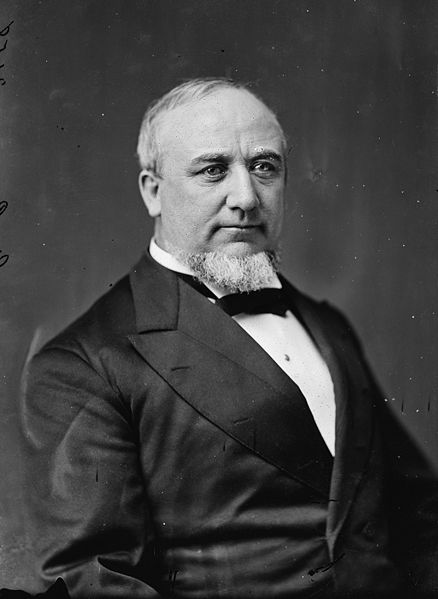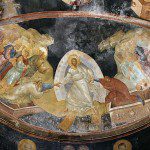
I want to remind everyone out there again of the gathering tomorrow night — Friday night, 10 May 2024 — in honor of the contributions of George L. Mitton. The event will take place at 7 PM in the large room upstairs at Legacy Village, 4146 North University Avenue, Provo, UT 84604.
A new book has been published in connection with this event, under the title Joseph Smith and Our Preparation for the Lord’s Final Judgment.

Early last evening, my wife and I observed a photo shoot in Salt Lake City for the Interpreter Foundation’s rapidly approaching theatrical film Six Days in August. The shoot involved the film’s Joseph Smith (Paul Wuthrich, reprising his role from Witnesses) and its Brigham Young (John Donovan Wilson), and was the first step toward creating movie posters and social media and other key art for the film.
From there we went to a performance by the Utah Opera of Jules Massenet’s 1894 opera Thaïs. I thought that I had seen Thaïs once before, many years ago, but I realized within about the first sixty seconds that I had not.
I was surprised by it, and surprised at how much I enjoyed it. (Of course, almost everybody is familiar with its famous violin “Meditation.”) To a small extent, I enjoyed it because of its setting in fourth-century Egypt, a place (though not especially a time) with which I’m very familiar. I first went to Egypt in January of 1978, we lived in Egypt from the summer of 1978 to the summer of 1982, and we have visited Egypt more times since then than I can count — most recently late last October and this past January.
But I want to offer a few comments on the opera and on its performance last night. It is the story of Thaïs, a superstar courtesan in Alexandria, and of a devout Christian named Athanaël, who had apparently known her when they were both quite young. A monk of Antinoë (or Antinoopolis) in the Western Desert — years ago, I had the opportunity to visit the venerable and remote monastery of St. Antony in the Eastern Desert and to make repeated visits to the distant monasteries of Wadi Natrun in the Western Desert — Athanaël is determined to convert her from her overt devotion to Venus to his rigorous form of Christianity, and thus to save her soul. He succeeds, but, in the end, he seems to have lost his own.
I begin with the very last scene, which — unsurprisingly to those who have been following my blog for any length of time — strongly caught my attention. Just a few months after her repentance and conversion, Thaîs is dying, and Athanaël realizes that he can’t bear the thought of losing her. He comes to her convent and confesses his love for her, essentially renouncing his Christianity and asceticism, begging her to live:
Non! le ciel . . . rien n’existe . . . rien n’est vrai que la vie et que l’amour des êtres. . . . Je t’aime!
No! Heaven . . . nothing exists . . . nothing is true but life and the love of (human) beings. I love you!
Here are the final words of Thaïs, spoken on her deathbed. I have omitted the interjections and pleadings of Athanaël:
Et la voilà l’aurore! . . .
Et les voilà les roses de l’éternel matin! . . .
Le ciel s’ouvre! Voici les anges et les prophètes . . .
et les saints! Ils viennent avec un sourire,
les mains toutes pleines de fleurs! . . .
Deux séraphins aux blanches ailes planent dans l’azur,
et comme tu l’as dit, le doux consolateur posant
sur mes yeux ses doigts de lumière!
Ah! en essuie à jamais les pleurs! . . .
Le son des harpes d’or m’enchante!
De suaves parfums me pénètrent!
Je sens une exquise béatitude,
Ah! Ah! Une béatitude endormir tous mes maux! . . .
Ah! le ciel! Je voix… Dieu!
And here is a slightly free English translation, partially but not entirely my own, of her final words:
And here is the dawn! . . .
And there the roses of eternal morning! . . .
Heaven is opening! Here are the angels and the prophets . . .
and the saints! They come with a smile,
their hands all full of flowers! . . .
Two seraphim with white wings soar in the azure (sky)
and, just as you said, the gentle Comforter places
on my eyes his fingers of light!
Ah! dries them forever of tears! . . .
The sound of the golden harps enchants me!
Gentle fragrances pierce my soul!
I feel an exquisite beatitude,
Ah! Ah! A beatitude that puts to rest all my pains! . . .
Ah! Heaven! I see . . . God!
Whether Massinet or his librettist Louis Gallet (or the Nobel-laureate Anatole France, on whose 1890 novel Thaïs, which I have not read, the opera is based) invented her final words out of pure imagination, or whether they are based on the final words of others, I do not know. But some will recognize that they strongly resemble many accounts of so-called “death-bed visions.” The ecstatic references to light, music, beautiful scents, welcoming heavenly beings, peace and exquisite happiness . . . These are textbook elements of such accounts.
Other thoughts occurred to me last night, as well. It is the physical rigors of her several months of guilt-induced penance that ultimately kill Thaïs, and I thought how belief in Christ’s atonement without such demanding penitence would have made for a happier ending. The Restored Gospel stresses repentance, but it doesn’t demand self-flagellation or self-destruction. And a non-celibate, non-monastic form of Christianity would have allowed Athanaël to marry Thaïs, whom he clearly loved and who seems possibly to have loved him, as well. There should not be an absolute gulf between loving God and feeling affection or love for God’s children. Athanaël’s frustrated love may have destroyed him, and their suffering was unnecessary.
But I was especially put off by one particular modern misreading of the story, evident in both the program notes and the audience’s reaction:
In the program notes, “religious hypocrisy” is identified as one of the opera’s themes. But I absolutely do not see Athanaël as a hypocrite. To me — and I would appreciate readers’ perspectives on this — a hypocrite is someone who publicly professes a principle or a set of principles but, privately, either doesn’t really believe in them or regularly, consciously, deliberately, and rather blithely violates them. Examples would include a politician who trumpets his commitment to “family values” but who engages regularly in secret trysts with his mistress and, while claiming to be pro-life, pays for her abortion. Or a politician who campaigns on her deep concern for the poor and the downtrodden but who gives nothing to charity and who exploits and mistreats her cleaning lady.
Athanaël, however, is portrayed in the opera as genuinely pious, authentically and deeply religious, albeit tormented by a deep attraction to Thaïs. That attraction emerges only after he has gone to Alexandria in what seems to have been a sincere effort to retrieve her from a life of ostentatious devotion to superficial sensuality. As he takes her to the desert area of his monastery and her destined convent, driving her mercilessly and demanding that she punish her body in penance, she collapses. It is then that he recognizes her inner purity, her goodness and the utter sincerity of her conversion:
Ah! des gouttes de sang coulent de ses pied blancs. La pitié s’émeut en mon âme! Pauvre enfant! Pauvre femme! J’ai trop prolongé cette épreuve! Pardonne-moi, ô ma sœur, ô sainte Thaïs! O sainte, très sainte Thaïs!
Ah, drops of blood drip from her white feet. Pity moves my soul. Poor child! Poor woman! Oh holy Thaïs, oh my sister ! — I have prolonged this hard trial too long! Forgive me. [He prostrates himself. Weeping, he kisses her bleeding feet with adoration.] Oh holy, most holy Tha’is!
Plainly, this isn’t mere lust. Moreover, yielding to a powerful temptation after strenuous resistance to it does not seem to me an example of mere hypocrisy, but simply of human weakness and fallibility.
The audience, however, didn’t react properly on the — I believe — three occasions when Athanaël prays for the strength to resist the powerful temptation of Thaïs’s charm and beauty. Each time, there were titters of laughter. I’m assuming that those who laughed didn’t believe his prayers to be sincere, that he was merely a lustful man paying lip service to his professed beliefs. But this seems to me completely misguided. The opera itself portrays him as deeply disturbed after taking Thaïs to the convent and returning to his own monastery. His fellow monks worry about him; for weeks he doesn’t eat, he doesn’t drink, and he rarely speaks. He confesses his torment to his superior at the monastery, who provides no real help but simply bids him farewell and walks out. It is only then that Athanaël leaves his monastery to visit the dying Thaïs, to confess his guilty love and to implore her to live.
I wondered what the audience’s laughter signified: Are modern people simply incapable of taking an oath or a vow seriously? Do we deride and mock the notion of moral restraint and moral effort? Do we no longer believe in the possibility of human goodness, or of genuine human efforts to attain it. I was, honestly, very bothered by that laughter.

(Wikimedia Commons public domain image)
I was shocked today to hear from a friend of the death of former Utah Congressman Chris Cannon: “Former Utah Rep. Chris Cannon dies at age 73” One of Chris’s younger brothers was a missionary companion of mine — more than once, actually — in Switzerland, and I came to know his entire remarkable family shortly after I returned. In fact, for a brief time, Chris and I lived with several others in a house at the southwest corner of the BYU campus that has long since been razed and, fittingly, replaced by an expanded parking lot for Brick Oven Pizza.
Chris was a good man. He made a mark, and he will be missed.
















